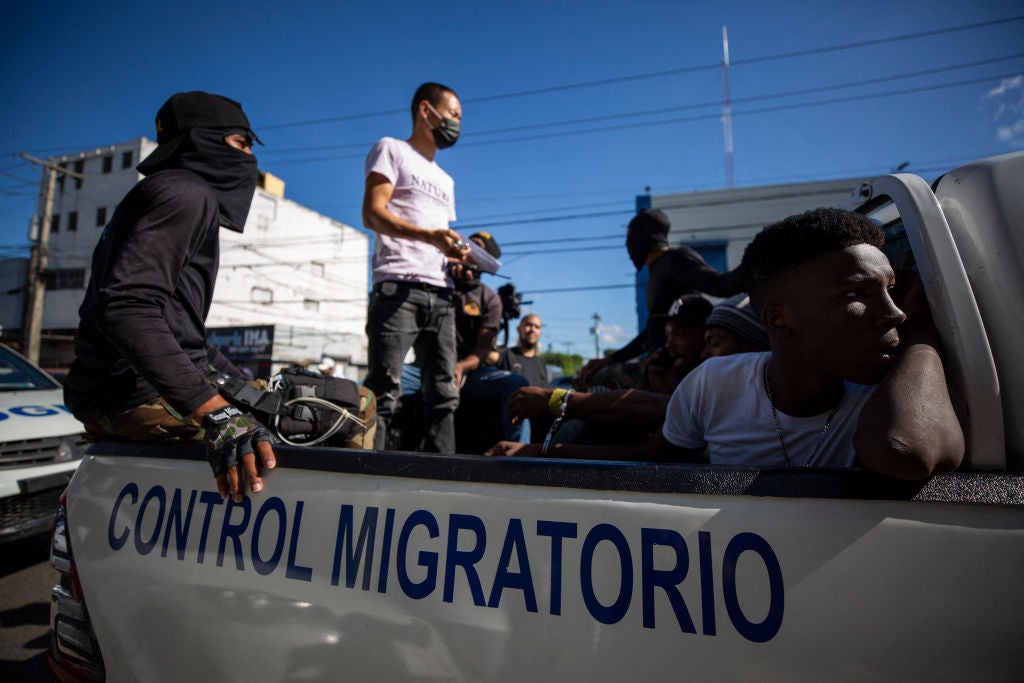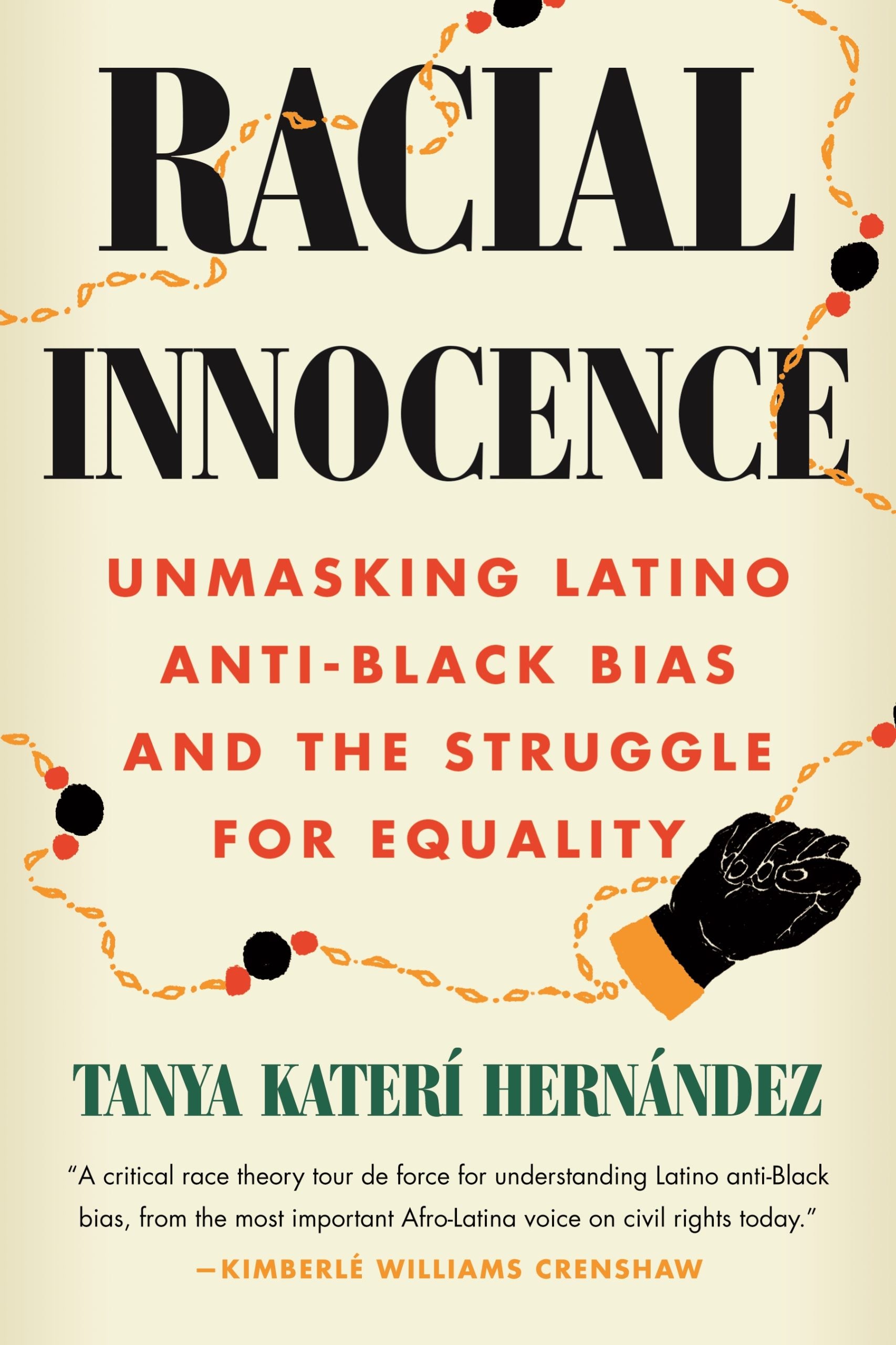
With the 2020 murder of George Floyd igniting a racial reckoning in our country and the Black Lives Matter movement becoming more mainstream, the subsequent marches and protests have “mobilized Latinos to confront racism and anti-blackness within their own communities.”
Despite data from the last census showing that “[m]ore than two-fifths of Americans now identify as people of color,” additional nuance is needed when considering how someone chooses to identify with respect to their heritage, race, and ethnicity. Per a recent survey from the Pew Research Center, “many Afro-Latinos still struggle with identifying as Black,” and nearly a quarter of the respondents misidentified their race as “‘Hispanic’ – which is an ethnicity, not a race.”
Tanya K. Hernández is the Archibald R. Murray Professor of Law at the Fordham University School of Law, a renowned and prolific scholar and writer. She recently authored her latest book, “Racial Innocence: Unmasking Latino Anti-Black Bias & The Struggle for Equality,” to tackle the impacts of racism within the Latino community.

While the book is grounded in research, it is also an acutely personal subject for Hernández, who self-identifies as Afro-Latina. As she concludes in the book’s epilogue, “What drove me to persist with the painstaking hunt for the narratives of discrimination when so many Latino scholars and commentators instead suggest that Latino anti-Blackness does not merit deep exploration? My family history as an Afro-Latina would not permit otherwise. This is because embodying Blackness within a Latino family can so deeply ground one in the materiality of Latino bias that fantasies of Latino color-blind unity are unable to interfere with a questioning of Latino racial attitudes.”
In concert with this month’s official publishing and release of “Racial Innocence,” Hernández spoke with ESSENCE about her new book, the intricacies and complexity of American racism, its roots and historical context, and her personal insights and reflections on this multifaceted issue.
This interview has been edited for length and clarity.
ESSENCE: What was the inspiration for writing this particular book?
It’s been a long journey, I’ve been a law professor and legal scholar for over two decades, and my focus has always been on issues of racial justice. I like to use a comparative perspective because I think that really helps illuminate the things that are otherwise invisible to us because we think it’s “normal” until we see it in comparison to another jurisdiction.
So, with that as background, I’d say that was the intellectual interest that I had in Latinos as this community. They bring Latin American and Caribbean perspectives with them regarding race in the United States while they are reacting to U.S. forms of racism. Yet all of it is just sustaining anti-Blackness. One thing does not diminish the other, the two of them combined just enhance the anti-Blackness, which is some of the intellectual part of the journey.
“[H]ow can you be professing to be so racially evolved while at the same time there’s all this anti-Blackness being spoken?”
The other part is really a very personal one. My family is from Puerto Rico and I have traveled around much of Latin America and the Caribbean, and what has always been very disconcerting to me is the way in which Latin Americans and Caribbeans talk out of two sides of their mouths when it comes to race. Out of one side, there is this sense of superiority compared to the United States as being more racially evolved, “We don’t have racism, or at least not racism like in the United States. We’re all mixed so we can’t possibly be racist. We don’t see color, blah, blah, blah.” Then, out of the other side of the mouth is this mitigating commentary about Blackness as negative. But, how can you be professing to be so racially evolved while at the same time there’s all this anti-Blackness being spoken?
So, I wanted to explore the ways in which things I heard growing up– and continued to see as an adult within Latino communities as part of the racial pathologies and the racial discourse– transmitted into actions on the ground that were discriminatory and hence part of racism.

ESSENCE: How did you come up with the title for your book?
In some respects, it’s almost like a sequel, because an earlier book called “Racial Subordination in Latin America” was all about looking at these pathologies from Latin America and the Caribbean, and the denial based on strategic comparisons to the United States, “They’re not racist. That’s the United States.” I call that racial innocence, this Latin American racial innocence, vis à vis the United States, particularly because of this sense that, “we didn’t have Jim Crow segregation like the United States did. So we’re racially innocent. We don’t know that. We are untainted by that racial ugliness.” When in fact, when you dig deeper, and that’s what the earlier book discussed, the ways in which there was law going on [contradicting those attitudes].
It was customary law, but it was still law because customary law is law, even if it’s not on the books. In some respects, some might say, it’s almost even worse than legislated, statutory law, or case law precedent, because it’s so deeply embedded in the society that you don’t even need to put it in writing. That’s how deep the enforcement is, that police officers act upon it, “You don’t belong here by custom. We’re throwing you out. We’re gonna throw you in jail for entering into this white space.”
Those are the histories in Latin America, post emancipation, slavery ends, we don’t put in Jim Crow. But Blackness is strictly regulated. So that was the first book, and this book, “Racial Innocence: Unmasking Latino Anti-Black Bias & The Struggle for Equality” takes these ideas about racial innocence and shows the ways in which Latin American families packed this along in their baggage with them too. You don’t just bring over food, music, and dance, you also bring your cultural attitudes. It becomes particularly problematic when these cultural attitudes are viewed as invisible because of the idea of racial innocence, that real racism is what happens in the United States, not what we do.
ESSENCE: Can you speak more on colorism, and why you think Blackness originated as a negative versus the reverse?
Here’s the thing that I like to be very emphatic about. While it is useful to talk about colorism, I always like to say that colorism is not separate from racism. Colorism is one manifestation of racism, and the example I think that makes this very clear within Latino communities is that even a person who is light-skinned, beats their hair into submission so it looks like good hair, i.e., European hair, etc., the moment they open their mouth and reveal that there are these other people in the family who are darker, they are not treated in the same kind of way. We say that the one drop is only about the United States, and it may not be called a one drop rule within Latin America, but there is a keen sense of noticing people’s ancestry.
It’s not just about color because it’s not just about what you look like. It’s about what is viewed as the problematic aspects of your background, and that is African ancestry. It’s about viewing a particular designated racial grouping or origin of African-ness as a problem. This can’t be divorced from the way in which slavery was created and justified, through mechanisms of racial discourse that treated African-ness as problematic, decadent, and inherently inferior. When you have someone who is light-skinned, but their hair doesn’t match the understanding of what light-skinned should look like, that is viewed as a problem in Latino communities, and we’ve got special names for that. We don’t just have a word for Blackness. We have a word for Black, but with a big nose; Black, but with curly hair; so there’s all kinds of ways in which there is a taxonomy to finely tune itself to everything that’s really negative about African-ness. That’s about racism, that’s not just solely about an aesthetic reaction to pigment. When people want to talk about the Latino race problem as primarily about colorism, I think too much gets lost.
ESSENCE: What would you like a reader’s main takeaways to be?
One, I’d like for there to be a greater notice and understanding of how Latinos can also be racist, and in knowing that, then also be better able to call it out and not accept these poor excuses of a defense of “I can’t be racist because I’m Latino,” as if that were a shield or a cloak against racism. I think if a reader came away with those two things, it would be a great help towards trying to eradicate racism within our country.





